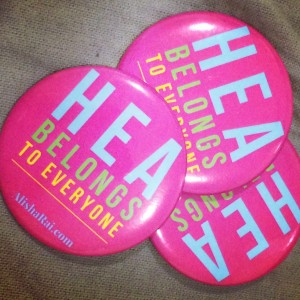 Hi everyone. A reminder: my posts are my own personal opinion, and not the views or policy of any other organization.
Hi everyone. A reminder: my posts are my own personal opinion, and not the views or policy of any other organization.
I know there’s been talk about recent events–some of it public, some of it private. I wanted to lay out how I see it. I recognize that there are other viewpoints. But I feel that some of the talk has centered on what is “nice,” and I think it’s important to step back and take a look at the broader issue here.
I’m not naming names, because–believe it or not–I don’t want this to be about the person who set off this firestorm, and I don’t want to hurt her. If I use her name, this post will show up in Google searches about her, and that might hurt her.
Here is how I see what happened:
- On January 15, 2016, a post went up on Kirkus Reviews blog. That post was about celebrating diversity. It also contained this extremely troubling claim: “I rarely get romances to review that are written by or include characters of color. So even when I actually buy a book, or a publisher sends me an author I really want to read, I usually don’t have time—reading that book takes me away from titles I get paid to read.” Let me translate if you’re not seeing what’s wrong with this: This says that Kirkus and NPR (the entities this author works for) by and large do not review books by diverse authors. The author of that post vowed to read more diverse romances in her spare time, but did not say anything about trying to change the conversation at her institutions.
- These are major review sources. Librarians and book sellers rely on these publications to decide who to purchase. Not being reviewed by these sources, ever, makes it materially difficult for an author to have a break out career in traditional publishing.
- This is an example of structural racism. Everyone may mean well, but if a publisher knows that a debut author isn’t going to get a Kirkus review, that publisher is less likely to buy that author–even if they care about diverse books, they also have to care about the bottom line. If a librarian wants to buy diverse romances for her collection, but they aren’t being reviewed, how does she find them? And so on and so on.
- However positive your personal interactions with the individual who wrote that post may be, that person has a history of interacting with–particularly–women of color and queer authors in a way that has been less positive. Not all queer authors or women of color. I don’t even know if it’s most of them. But it’s enough that there’s a pattern. This history is not based on the one post I list above. It is a years-long history. I don’t want to make this post about her. I’m not posting examples. I don’t actually want to hurt her personally, but I do want to address the structural racism, and I have to mention this history to contextualize what happened.
- I left a comment on this post, asking her a number of questions.
- The author wrote a response, posted as a second post on Kirkus’s blog. I’m not going to go into the myriad reasons why I felt this response was inflammatory and unresponsive. There’s only one that matters. One of the major structural barriers that creates a roadblock for diverse authors having careers–that they aren’t reviewed by major publications–was not addressed by the person who was best in a position to remedy that structural barrier–namely, the person who reviews for those major publications. A promise to read more on her personal time doesn’t remove that structural barrier.
- Numerous people (including yours truly) discussed that second post on Twitter. Years of frustration leaked out in those responses. Multiple people told stories about things that had been done to them by that person. These were not gossipy bar stories. These were people who were complaining about structural barriers to entry for underrepresented authors: that a key person who wrote key reviews and organized key romance events that could help unlock key markets to help romance authors break out was systematically excluding them.
- These people, these complaints, and me in particular, have been labeled by some as “mean-spirited” and “unprofessional,” and some people are circulating a counter-narrative that fails to mention the issues above.
That’s how I see the history.
Why do I personally speak out on this issue, and why is it important for me to continue to speak out?
Because of items 1, 2, and 3 on the list. Underrepresented people are systematically being excluded from benefits that are extended to white, straight authors. Kirkus Reviews published a piece admitting that, with only a tiny number of exceptions, they don’t review romances except those written by white authors.
Skip the reasons. Just look at that sentence. Kirkus Reviews published a piece admitting that, with only a tiny number of exceptions, they don’t review romances except those written by white authors.
This isn’t about who is nice and who is mean. It’s about a fundamental injustice that is being dealt, over and over, to people of color, to queer authors, to disabled authors, to religious minorities, to trans authors–authors who don’t want a leg up; they just want the same chances.
White, straight authors, I know you have all told yourself at some point, reading about past injustices, that you would do what was right. You’ve read about heroes and heroines who put themselves in great danger to change the world. You’ve told yourself that if you’d been in their shoes, you’d have been the one who stood up and helped instead of taking a backseat.
You don’t have to put yourself in personal danger today to stand against injustice. You just have to say that happily ever afters belong to everyone. To say that every author deserves a chance at a career. To stand up and shout that an author’s book should have a chance to be judged based on the quality of her writing, and not on the color of her skin.
Kirkus Reviews published a piece admitting that they don’t review romances except those written by white, straight authors.
Yes, I’m mad. As a career-focused romance author, I’m mad that some authors are being systematically denied the opportunity to have a career creating happy endings.
If you care about romance and the future of the romance genre, why aren’t you angry with me?
Comments are off.
